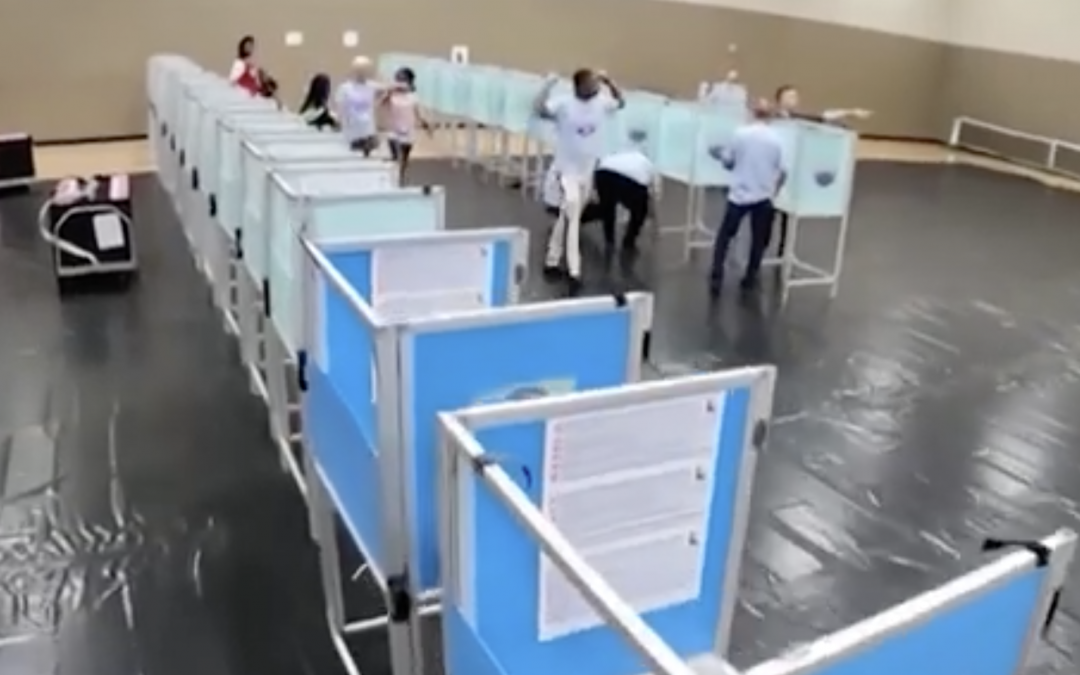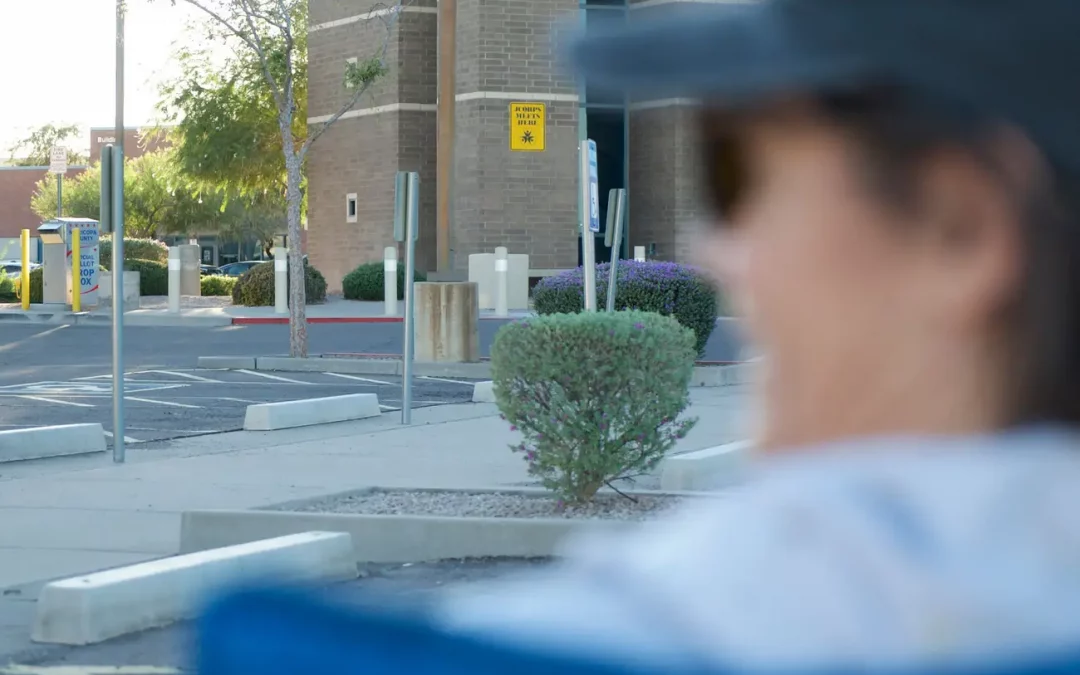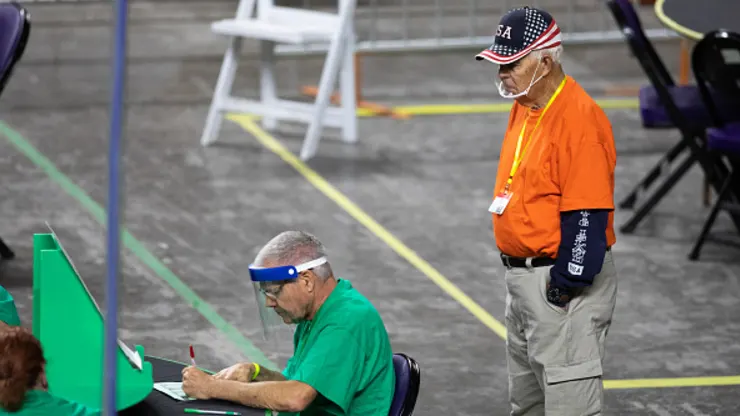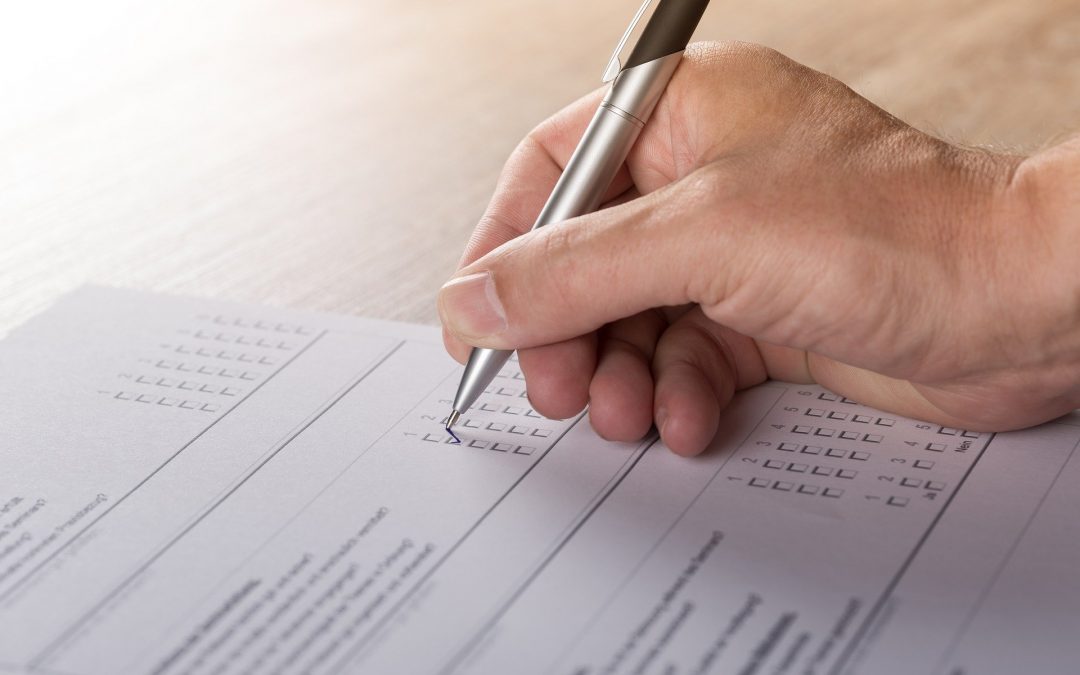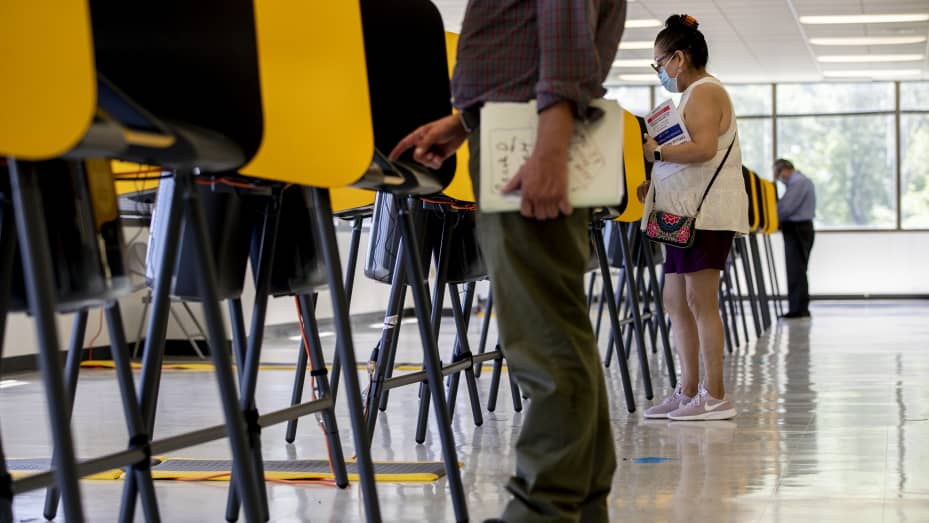
A 64-year-old Iowa man was arrested earlier this month for threatening to kill election officials in Arizona’s Maricopa County — a pivotal county at the center of the 2020 election and subsequent state recount where former President Donald Trump lost by about 10,000 votes.
“When we come to lynch your stupid lying Commie [expletive], you’ll remember that you lied on the [expletive] Bible, you piece of [expletive]. You’re gonna die, you piece of [expletive]. We’re going to hang you. We’re going to hang you,” the man allegedly said in a voicemail left for Arizona Attorney General Mark Brnovich on Sept. 27, 2021, according to the Justice Department.
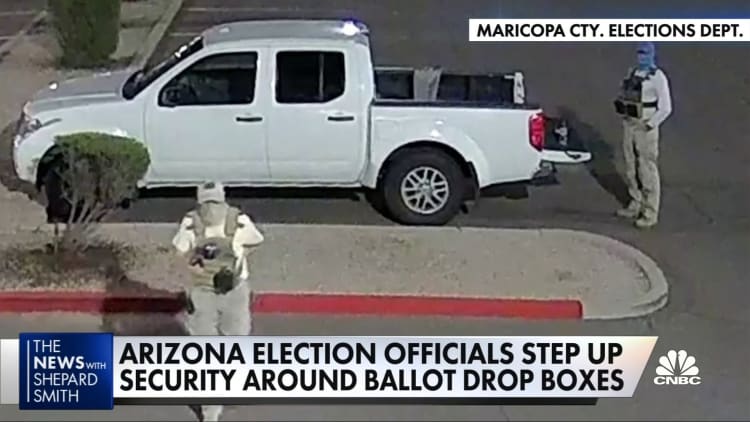
That is just one example of the rising number of violent threats election workers in the days leading up to the Nov. 8 midterms. The Department of Justice and other law enforcement agencies are cracking down on the escalation of the threats ahead of the U.S. election that could flip the balance of power in Congress.
“Threats to election workers not only threaten the safety of the individuals concerned, but also jeopardize the stability of the U.S. electoral process,” the FBI said in a public service announcement earlier this month. Homeland Security warned in June that “calls for violence by domestic violent extremists” against election workers, candidates and democratic institutions will likely rise the closer we get to the midterms.
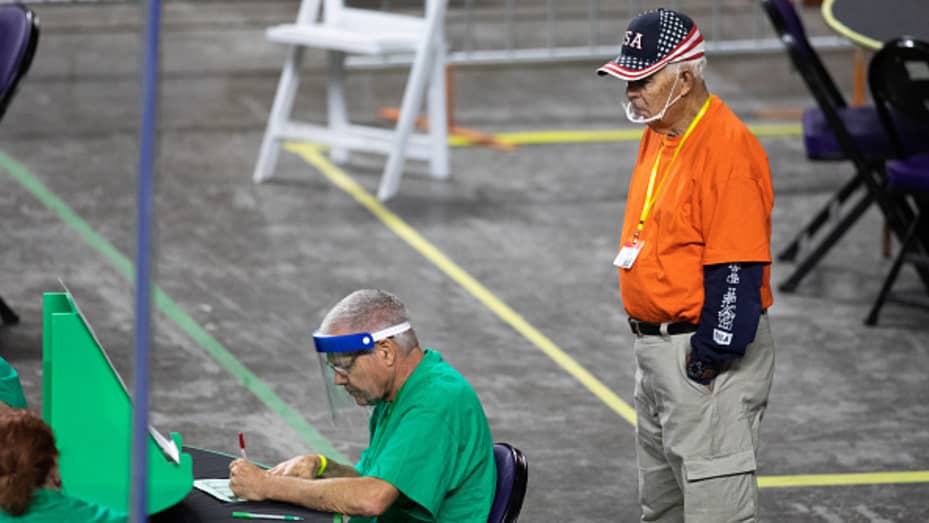
DOJ has fielded an increasing number of reports of threatening voicemails, online messages and even in-person encounters since Trump lost the 2020 election.
“These threats against election officials continue,” Michael McDonald, a professor of political science at the University of Florida and author of “From Pandemic to Insurrection: Voting in the 2020 U.S. Presidential Election,” told CNBC. “It’s straining and stressing election officials. And in some cases, they are opting to retire from running elections.”
Unprecedented intimidation
Earlier this month, DOJ Assistant Attorney General Kenneth A. Polite Jr., who runs the agency’s criminal division, briefed hundreds of election officials and workers on federal government grants available under the 2002 Help American Vote Act to bolster physical security at election locations. The act authorized an additional $75 million for security for this year — up from $425 million in 2020. Additional funding from the $1.9 trillion American Rescue Plan can also be used to protect election workers, Polite said.
The precautions stem from the unprecedented intimidation of election officials and workers during the 2020 presidential vote — an election that Trump continues to falsely claim was rigged — even though numerous courts, law enforcement and high-ranking Republican officials have found no evidence of widespread fraud.
Workers in battleground states in 2020, notably Georgia and Arizona, have been repeatedly targeted by extremists since those states’ races were contested and lost by Trump.
Gabriel Sterling, Georgia Secretary of State’s chief operating officer, told U.S. lawmakers in June that one of the state’s election workers was threatened to be “hung for treason” after transferring an election report to a county computer.
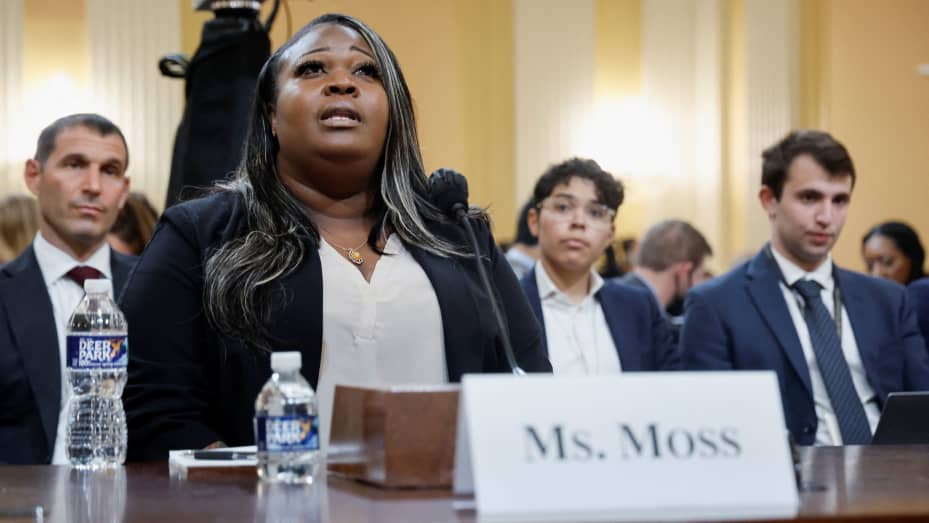
Former Georgia election worker Wandrea ArShaye “Shaye” Moss testified at the same hearing about racist threats and death wishes she received after becoming the focus of a Trump conspiracy theory.
‘Turned my life upside down’
Moss, who was falsely accused of election tampering, said the harassment stemming from those accusations “turned my life upside down.”
“It’s affected my life in a major way. In every way. All because of lies. From me doing my job, the same thing I’ve been doing forever,” Moss told the House committee investigating the Jan. 6, 2021, attack on the U.S. Capitol.
DOJ launched an election threats task force in July 2021 to ensure voters are safe at the polls and to look into the rise in threatening behavior against election workers like Moss. Over the past year, it has held approximately 40 meetings, presentations, and trainings with the election community, state and local prosecutors, state and local law enforcement, vendors providing services to support election administration, and major social media companies, a DOJ official told CNBC.
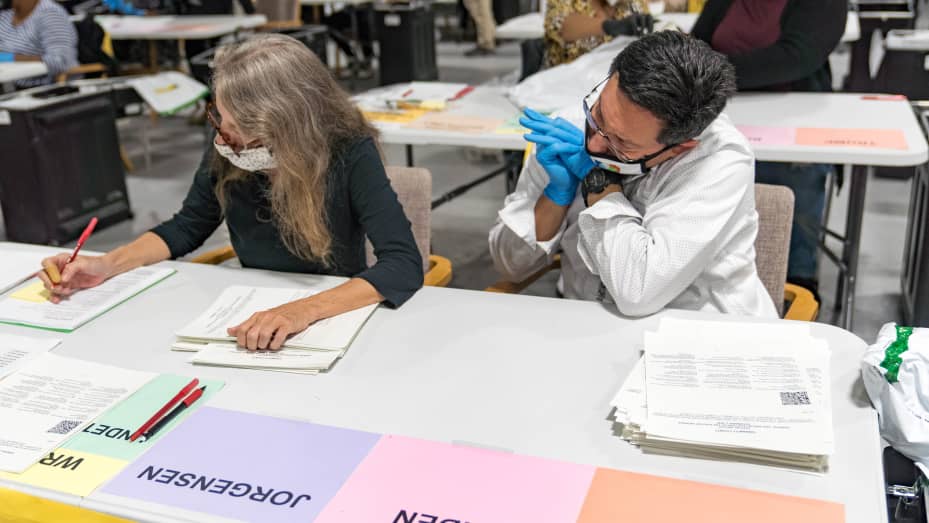
The task force reviewed over 1,000 contacts reported by elections officials as hostile or harassing, the agency said in August. In cases where they could identify the offender, half of them contacted officials on more than one occasion and about 11% of the incidents merited federal criminal investigation, according to the task force.
Close elections
“Election officials in states with close elections and post-election contests were more likely to receive threats,” DOJ said. More than half 58%, of the potentially criminal threats were in states that underwent 2020 post-election lawsuits, recounts, and audits, including Arizona, Georgia, Colorado, Michigan, Pennsylvania, Nevada and Wisconsin.
A March report by the Brennan Center for Justice, a nonpartisan policy institute, showed nearly one in three local election officials know at least one worker who has left their job due in part to safety concerns, elevated threats or intimidation. One in six local officials has personally experienced threats and more than half of this number have been threatened in person, according to the report.
“Who’s going to run the election, if sensible people aren’t willing to do it because they’re under threat?” McDonald said.
Richard C. Bell, a legal analyst and author of “Voting: The Ultimate Act of Resistance,” says federal and state government officials are stepping up their response to ensure election integrity and to make election workers feel safer.
“It is going to be safe for voters to vote, and it’s going to be safe for election officials to carry out their work,” Bell said. “This is not 2020 when some people got taken by surprise. We’re very well aware of the possibilities.”
Georgia launched a statewide text alert system this month to report incidents of violence against poll workers. The office of Secretary of State Brad Raffensberger, a Republican who defied former Trump by certifying that state’s 2020 election results favoring Joe Biden, created the tool after the last presidential election. Raffensperger said he and his family have been targeted with numerous threats since Trump lost.
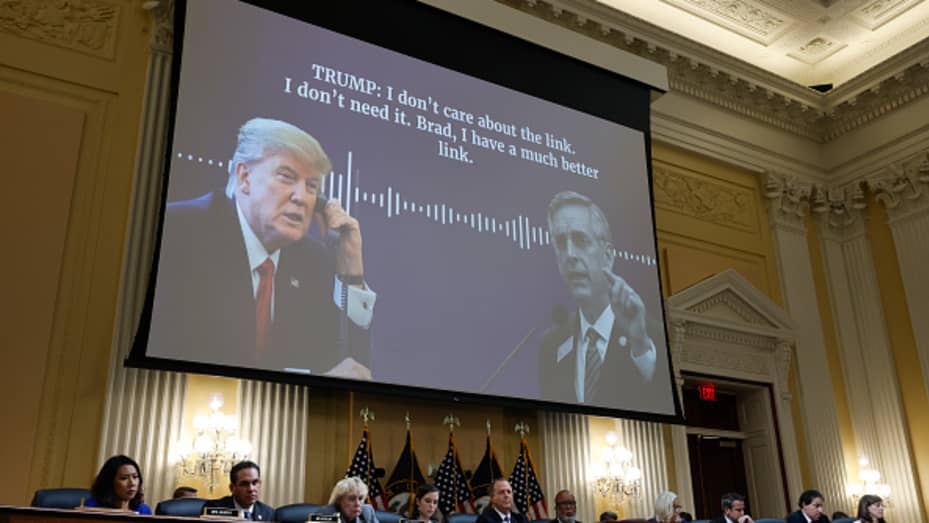
The FBI sent out a memo this month warning the public against threatening election staff in Arizona, where workers have received death threats.
In June, Colorado Gov. Jared Polis signed an act protecting election workers from threats, coercion or intimidation into law.
Fair and free elections
The Office of U.S. Attorneys, which prosecutes federal crimes in local regions across the country for DOJ, is also assigning local prosecutors to help oversee election safety in every state as part of the Justice Department’s routine Election Day Program.
“Every citizen must be able to vote without interference or discrimination and to have that vote counted in a fair and free election,” U.S. Attorney Dena J. King said in a statement. “Similarly, election officials and staff must be able to serve without being subject to unlawful threats of violence. The Department of Justice will always work tirelessly to protect the integrity of the election process.”
The same day the Iowa man was arrested for threatening Arizona officials earlier this month, DOJ said a man in Nebraska was sentenced to 18 months in prison for threatening an election official and posting threatening messages on Instagram to Biden and another public figure.
“Do you feel safe? You shouldn’t. Do you think Soros will/can protect you?” prosecutors said the man told the election official, referencing billionaire Democratic donor George Soros. “Your security detail is far too thin and incompetent to protect you. This world is unpredictable these days … anything can happen to anyone.”

